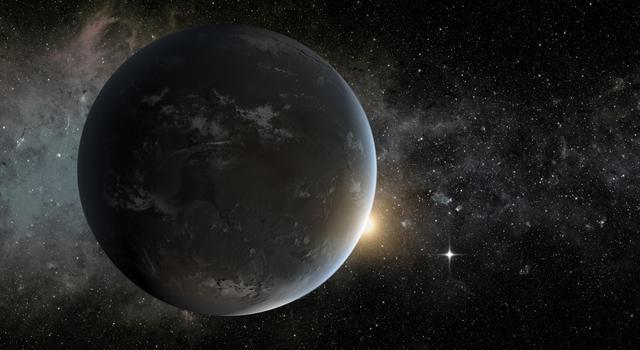
Nearby Stars List
Future efforts to directly image exoplanets will concentrate on the nearest and brightest stars. A catalog listing the properties of such stars is now available at NExSCI for use in planning such missions (e.g. WFIRST).
NASA Astrophysics Program Websites
Exoplanet Exploration Program (ExEP)
- Exoplanet Exploration Program Analysis Group (ExoPAG) - https://exoplanets.nasa.gov/exep/exopag/overview/
The ExoPAG is responsible for soliciting and coordinating community input into the development and execution of NASA’s Exoplanet Exploration Program (ExEP). It serves as a community-based, interdisciplinary forum for analysis in support of activity prioritization and for future exploration.
Physics of the Cosmos (PCOS) - http://pcos.gsfc.nasa.gov/
- Program Analysis Group (PhysPAG) - http://pcos.gsfc.nasa.gov/physpag/
The PHYSPAG serves as a forum for soliciting and coordinating input and analysis from the scientific community in support of the PCOS program objectives.
Cosmic Origins (COR) - http://cor.gsfc.nasa.gov/
- Cosmic Origins Program Analysis Group (COPAG) - http://cor.gsfc.nasa.gov/copag/
The COPAG is constituted by the NASA Astrophysics Subcommittee (ApS) to support community coordination and analysis of scientific and technological issues impacting NASA's Cosmic Origins Program.
Explorers - https://explorers.gsfc.nasa.gov
- NASA’s program of Small Explorer (SMEX) missions. The Explorers Program provides frequent flight opportunities for world-class scientific investigations from space utilizing innovative, streamlined and efficient management approaches within the heliophysics and astrophysics science areas
Exoplanet Exploration Program Mission Websites
- Kepler - http://kepler.nasa.gov
- K2 - http://keplerscience.arc.nasa.gov/index.html
- WFIRST - http://wfirst.gsfc.nasa.gov/
- NN-Explore - https://exoplanets.nasa.gov/exep/NNExplore/
- LBTI - http://nexsci.caltech.edu/missions/LBTI/
- NExScI - http://nexsci.caltech.edu/
The Nexus for Exoplanet System Science (NExSS)
The Nexus for Exoplanet System Science (https://nexss.info) is an interdisciplinary endeavor that taps into the collective expertise from each of the science communities supported by NASA’s Science Mission Directorate:
- Earth scientists develop a systems science approach by studying our home planet.
- Planetary scientists apply systems science to a wide variety of worlds within our solar system.
- Heliophysicists add another layer to this systems science approach, looking in detail at how the Sun interacts with orbiting planets.
- Astrophysicists provide data on the exoplanets and host stars for the application of this systems science framework.
Other NASA Exoplanet mission websites
- JWST - http://jwst.nasa.gov/
- TESS - https://tess.gsfc.nasa.gov/
- SOFIA - http://www.sofia.usra.edu/

No comments:
Post a Comment
Comment here...